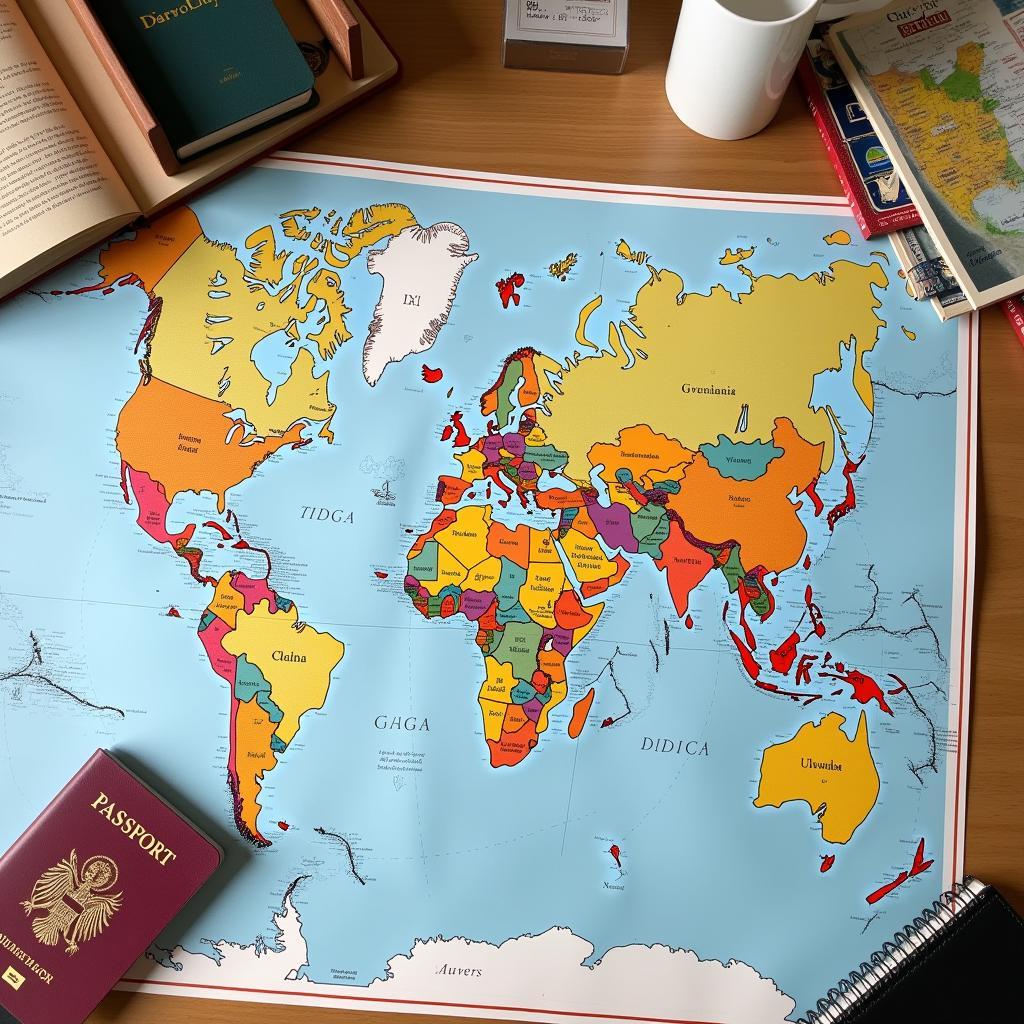When preparing for IELTS Speaking, describing future travel plans is a common topic that frequently appears in examinations. As an experienced IELTS examiner, I’ll provide comprehensive guidance on how to tackle this subject effectively across all parts of the speaking test.
Part 1: Introduction and Interview Questions
Common questions you may encounter:
- Do you like traveling?
- What kind of places do you prefer to visit?
- How often do you travel?
Sample answer (Band 8-9):
“I’m absolutely passionate about traveling and try to embark on new adventures whenever possible. I’m particularly drawn to destinations that offer a blend of cultural experiences and natural beauty. Ideally, I aim to take at least two major trips annually, though recently I’ve been focusing more on exploring off-the-beaten-path locations within my own country.”
 IELTS candidate preparing travel documents and map
IELTS candidate preparing travel documents and map
Part 2: Cue Card
Task Card:
Describe a trip you want to take in the future
You should say:
- Where you want to go
- Who you want to go with
- What you want to do there
- And explain why you want to take this trip
Similar to how candidates approach describe a scenic road trip you want to take, here’s a model response:
Sample answer (Band 8-9):
“I’ve been meticulously planning a trip to New Zealand’s South Island, which I hope to undertake next summer. I’m particularly keen on exploring this destination with my best friend, who shares my enthusiasm for outdoor adventures and photography.
The itinerary I’ve mapped out includes hiking the renowned Milford Track, which is widely regarded as one of the world’s finest walks. We also plan to immerse ourselves in the local culture by staying with host families and participating in traditional Māori ceremonies.
What makes this trip especially appealing is the perfect combination of breathtaking landscapes and unique cultural experiences. I’m drawn to New Zealand’s reputation for environmental conservation and its stunning natural diversity. Moreover, the chance to challenge myself physically while creating lasting memories with a close friend makes it all the more meaningful.”
Just as people share their experiences about describe a memorable experience at a beach, your response should include personal elements.
 Stunning view of New Zealand South Island mountains and lakes
Stunning view of New Zealand South Island mountains and lakes
Part 3: Discussion Questions
Q: How has international travel changed in recent years?
Sample answer (Band 8-9):
“The landscape of international travel has undergone a dramatic transformation in recent years. One of the most significant shifts has been the increasing focus on sustainable tourism, with travelers becoming increasingly conscious of their environmental impact. Furthermore, digital technology has revolutionized the way people plan and experience their journeys, from virtual reality previews of destinations to AI-powered travel recommendations.”
For those interested in how different experiences shape our perspectives, describe a public transport experience you enjoyed offers valuable insights.
Key Vocabulary and Phrases for High Scores
- Meticulously planning /məˈtɪkjʊləsli/ (adv.) – carefully and precisely
- Immerse oneself in (phrasal verb) – to become completely involved in something
- Drawn to (phrasal verb) – attracted to or interested in something
- Widely regarded as (phrase) – generally considered to be
- Moreover /mɔːrˈəʊvər/ (adv.) – furthermore; in addition to what has been said
Examiner’s Tips
- Use a variety of descriptive language
- Include specific details and examples
- Maintain good fluency and coherence
- Show enthusiasm and engagement
- Practice with different aspects of travel topics
Consider how this relates to describe a recent goal you achieved when discussing travel planning and preparation.


